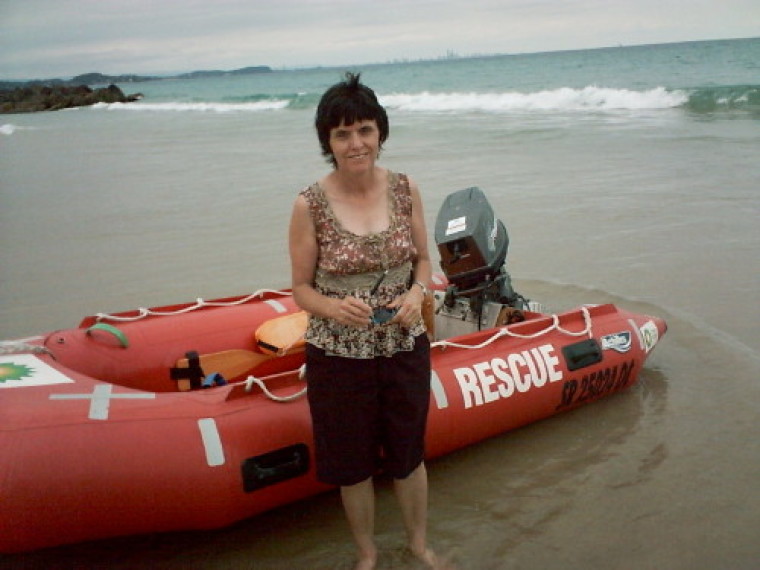
"One day I opened a magazine, and saw my face smiling back at me," she revealed during one interview in 2001. "I was shocked by the sorrow in my eyes and realised that I had been faking my smile for far too long. When did my famous smile become a chore? I felt anxious and alone."
Although Adriana was raised in Adelaide, she had been born in Argentina. She co-hosted Channel Seven's Wheel of Fortune for 18 years until ill-health forced her to retire in 1999. Although loved by her colleagues, her private life was plagued by troubles. There were a string of relationship breakdowns, a serious car accident, and she was plagued by poor health, both mental and physical. In later years, Xenides was shaken by the illness of her much loved mother, who died in her arms.
http://www.news.com.au/entertainment/television/wheel-of-fortunes-adriana-xenides-dies-aged-54/story-e6frfmyi-1225876728950
Well-Being Australia chairman Mark Tronson, who has been an industrial and sporting chaplain, has observed that this sense of loneliness is part and parcel of being 'famous' and in the public spotlight.
"Fame brings with it the surprising issue of whom you can trust," he says. "As you rise to the dizzy heights, you are supported by a plethora of colleagues, agents and family. When you get into the spotlight then a host of other people associated with your particular industry or sport want some of the reflected glory, and it quickly becomes apparent that few around you are there to provide solace and comfort."
People who are in this spotlight are actually working very hard – and their work situation quickly becomes all encompassing. Their days and nights are filled with people associated with their work. Their financial reward, and therefore the pay of some of the 'supporters', only continues as long as the fame continues, so everything therefore is geared to the effort of maintaining a high profile.
For such people, their time alone, or private time, is at a premium. Respite becomes critical and to get it demands serious personal discipline. For some, after a little while, this becomes such an effort that is greater than the work effort itself.
Imagine just going down the street to pick up a cooked chicken, or to enjoy some shopping, whether it be for clothes or cars, and be recognised and photographed at every step you take! These everyday pleasures become mammoth undertakings and are often fraught with difficulties and drama. For example, what happens when your 'unmentionables' wear out? Who purchases these for the stars?
Imagine the photographs and 'tweets' that would instantly circulate if your favourite celebrity, sports star or politician was seen buying intimate clothing in a departments store! (Of course, some now make their purchases on-line, but nevertheless, the convenience of shopping and choosing for themselves is lost to them).
http://www.news.com.au/entertainment/television/home-shopping-revolution-sees-aussies-spending-30000-from-the-couch/story-e6frfmyi-1225877399179
For famous people, friendships outside their 'work situation' (the circle of people involved in their area of celebrity) are fraught. Some former friends do not want the publicity and notoriety, and in any case the time available is strained and limited to meet with those not involved in the high-profile life. Old and true friends become very precious, while new friends are carefully monitored.
Moreover, for many of these people, travel and being away from home can soon become the normal part of their 'workload'. Even during 'secure down time' from their public office, celebrities are usually totally alone!
M V Tronson says that it's little wonder that the famous go through some of the most horrific lonely experiences and try to compensate by playing the 'happy and carefree person', and sometimes engaging in some pretty dangerous behaviours. The tabloids are replete with example after example.
Even within a small community such as a congregation or school, ministers and teachers can experience these same dramas, although at a lower level. Christian Ministers, for example, are usually recognised within their town or suburb when they go out and about on personal business. Friendships are generally drawn from the congregation's leaders and that can get murky at times. Work and pleasure get inextricably mixed and mixed up.
Moreover, everyone watches the minister. Does he/she go through the red light? Who purchases the Minister's underwear? What about the minor exploits of the Minister's family?
Mark Tronson says that this is another area of great concern, that he may discuss at another time.
Loneliness for people involved at any level of fame is a very real issue. Respite becomes critical, but this respite needs to be taken well away from the people who occupy the work environment of these community professionals. It also needs to be catered specifically to help relieve the pressure of 'always being alone' – it requires mentoring by someone with a sympathetic ear.
M V Tronson tells the story of a Minister who had a regular weekly respite scheduled between Sunday night after the evening service to Tuesday mid-morning, unless there was an emergency such as a bereavement. The Minister had his caravan attached to his vehicle, and once those church doors were closed on the Sunday evening, he and his wife headed for a quiet spot well out of town along the river bank, returning Tuesday morning.
This became contentious among the members of the congregation who could not get their head around the idea that he and his wife needed time away, and, moreover, time away from them!! After all, they paid his stipend.
"Whatever the process, people at all levels of fame require respite time away from the people who look up to them," explains Mark Tronson. "The model for this is none other than Jesus Himself in that he regularly 'departed from them ….".